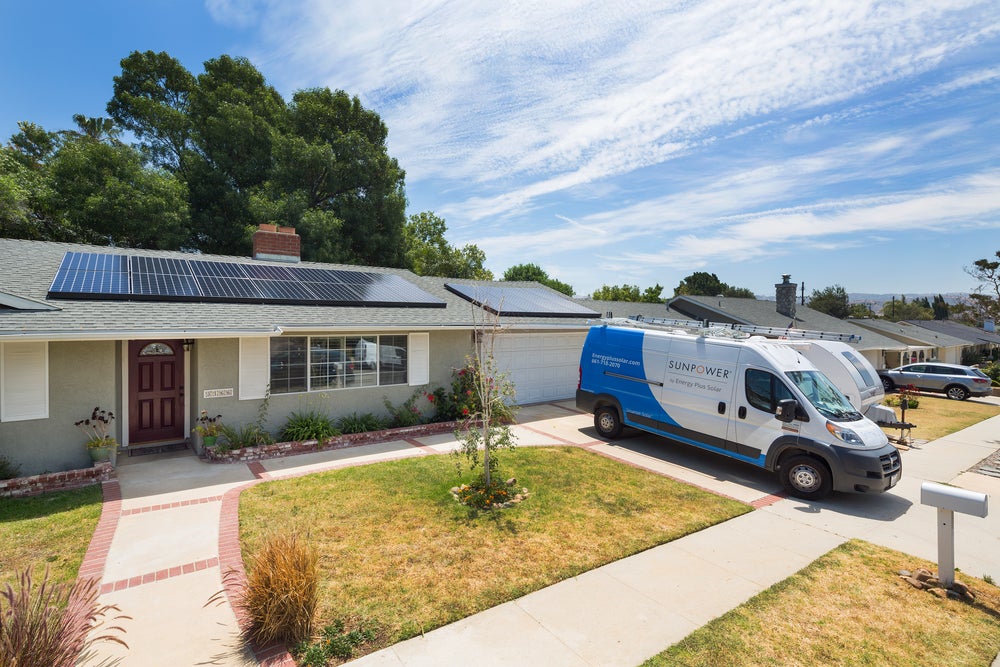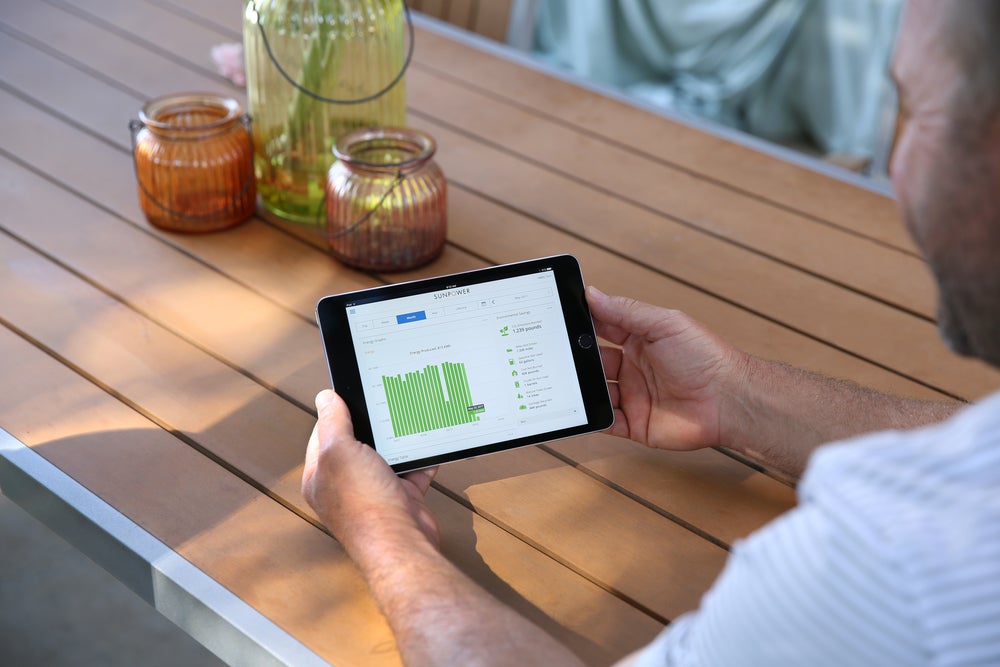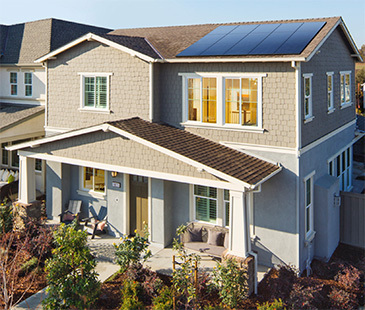How Much Do Solar Panels Cost?
Saving money is smart. Going solar is a smart investment. Everyone asks about cost, but if your goal is to maximize how much you make from your investment, then the most important questions are “how much money will you save each month on electric bills?” and “how quickly does your solar system pay for itself?”
To calculate that payback period, you need to account for factors like the quality of your solar system, how much sun reaches your solar panels, whether you lease or own the system, the cost per watt, available tax credits, and more. Reputable solar providers can calculate those factors to show you how quickly your system will pay for itself in electric bill savings.
But understandably, you want to know how much it will cost to put a solar system on your roof. Below we'll break down cost and some of the other major factors that you should consider.
Estimating how much home solar panels cost in 2024
One of the first questions someone interested in home solar asks is, "How much do solar panels cost?" It’s important to know there is not a one-size-fits-all answer because every home is different, and there are many geographic variables and federal and local tax incentives to consider.
The easiest thing to do is to contact a professional solar installer. The installer will give you a free evaluation that entails looking at your electricity bill to find out how many kilowatt hours of electricity your household typically uses and evaluating your roof and shading, to determine how many panels you’ll need. That, combined with local solar incentives your community may offer and the federal solar tax credit,*Tax credits are subject to change. SunPower does not warrant, guarantee or otherwise advise its customers about specific tax outcomes. Consult your tax advisor regarding the solar tax credit and how it applies to your specific circumstances. Visit dsireusa.org for detailed solar policy information. will give you a full picture of how much your home solar system will cost. The good news is that no matter where you live, the cost of solar panels is coming down.
We look at the price per watt when figuring out the cost of your system, but you may find it more useful to think about the price of leasing a solar system separately from the price to own one. That's because with a lease it's important to think about how much you can save for each month of the lease, but when you own the system it's more important to understand how quickly it can pay for itself.

What is the cost of individual solar panels?
Very few people are going to buy just the solar panels themselves, just like few people would buy the components of a car and build their own vehicle. We recommend you use a SunPower-approved installer for your residential solar power system.
Yes, it’s possible to buy a single solar panel for as little as $100, but a solar panel does not operate in isolation. You need a system of hardware and software to generate electricity from the sun, including solar panels, an inverter, mounting hardware, wires and cables. It is also beneficial to have a monitoring system that tracks the production, energy use and savings of your system. And you need to consider the cost of installation and operation.
Once you get an estimate for the cost of your solar system, you should subtract the potential savings on your utility bill over time, including any incentives offered by your local or state governments. Then you’ll have a better understanding of how going solar will impact your finances.
What are the factors that affect solar panel prices?

The cost of a home solar system can vary, even in the same city, due to a range of factors, including the:
Quality of the solar system
Household’s energy needs
Local weather
Available roof space and shading
Financing options selected (cash, loan, or lease)
To help you understand the price of going solar in your area, we've analyzed SunPower price quotes, as well as quotes gathered by third-party sources for thousands of homeowners across the country.*Local Solar Installers 2020/2021, Solar Reviews 2021, Energy Sage 2021, Wood Mackenzie 2020, National Renewable Energy Laboratory 2020
Looking at national average pricing data, we found that the cost of owning a 5 kW solar system ranges from $13,250 to $21,000, or from $2.65 to $4.20 per watt, and that’s before considering the benefits of any available tax credits or incentives*Tax credits and incentives are subject to change. SunPower does not warrant, guarantee or otherwise advise its customers about specific tax outcomes. Consult your tax advisor regarding the solar tax credit to see how it applies to your specific circumstances. Your SunPower dealer can help you determine incentives available in your area. You can also visit dsireusa.org for detailed solar policy information..
How do I know how much sun my roof gets?
The more direct sunlight your home receives, the more power the panels can produce. But there’s a little more to it than just sunlight. To see if your house is a good candidate for solar, try out a solar panel suitability checker such as Google's Project Sunroof. Then set up an appointment for a solar consultation with an expert who’ll visit your home to inspect its orientation (solar panels facing south capture more energy), roof angle and tree shading to see if your roof will receive enough sunlight to meet your family's electricity needs.
SunPower's solar consultations are free, online or in-person, and you can learn more about your home electricity needs and savings options.
SunPower panels are proven to be the most efficient on the market*Based on survey of datasheet values from websites of top 20 manufacturers per IHS, as of June 2020.—not to mentioned unmatched at generating power in low-light situations—but, excessive shading will reduce the amount of power that can be generated.
It's also important to know a SunPower Equinox® solar solution has unique, factory-integrated microinverters in each panel. Meaning, if one panel isn't producing energy because of shade, neighboring panels receiving more sunlight can still generate solar energy for your home.
What are the most efficient solar panels?
Remember that the adage, “You get what you pay for,” applies to home solar technology. Not all solar systems are alike. The quality of the technology matters in the long run. The durability, reliability and efficiency of solar panels can vary widely by manufacturer. If you settle for a conventional home solar system that might cost less out-of-pocket, you can expect to see average (or below average) results and less savings over time. Watch these videos about the lifespan of SunPower solar panels and their durability and reliability.
In short, SunPower panels are the most efficient home solar panels you can buy.*Based on survey of datasheet values from websites of top 20 manufacturers per IHS, as of June 2020. A higher quality panel like SunPower’s might cost a little more upfront, but you’ll see a higher—and quicker—return on your investment in the long run. Our panels come with a 25-year Complete Confidence warranty and have an expected useful life of 40 years.*SunPower Module 40-year Useful Life. SunPower whitepaper. 2013. And since they’re more efficient than other panels on the market, you’ll need fewer of them on your roof. Our panels produce up to 55% more energy in the same space over 25-years than conventional panels,*SunPower 400 W, 22.6% efficient, compared to a Conventional Panel on same-sized arrays (280 W multi, 17% efficient, approx. 1.64 m²), 8% more energy per watt (based on PVSim runs for avg US climate), 0.5%/yr slower degradation rate (Jordan, et. al. Robust PV Degradation Methodology and Application. PVSC 2018). ultimately saving you more money on your electric bill.
Industry measurements such as the Fraunhofer Center for Sustainable Energy Systems’ PV Durability Initiative can give you a better idea of a solar panel’s expected lifespan—a factor that can have a tremendous impact on the system’s lifetime value.
The superior efficiency and durability of high-quality panels can provide increased savings over time and lower maintenance costs. You can get a personalized SunPower solar savings estimate using our solar calculator, which lets you factor in variables like buying solar + storage and/or having an electric vehicle.
Do solar incentives or solar rebates help lower the cost?
There are many different tax incentives, subsidies and financing and billing solutions at the state and local levels that can make going solar more affordable. To see if you might be eligible for renewable energy incentive programs, visit our solar rebates & incentives page.
If you purchase your solar system, you may qualify for the 30% federal tax credit (ITC).*Tax credits are subject to change. SunPower does not warrant, guarantee or otherwise advise its customers about specific tax outcomes. Consult your tax advisor regarding the solar tax credit and how it applies to your specific circumstances. Visit dsireusa.org for detailed solar policy information.
Get a solar cost estimate from SunPower
Ultimately, the easiest way to answer the “How much does solar cost” question is to give our solar advisors a call at 1-800-SUNPOWER.
They’ll help you get a free estimate for your home. Or you can contact a solar installer in your area directly.
When you’re getting estimates, be sure to ask about the solar technology the installer intends to use, their hardware, their monitoring software, their past installations and their maintenance plans. It’s especially important to ask about their warranty!
Most solar companies offer multiple, separate warranties for each component on a solar system, and there can be hidden fees like shipping fees when replacing a broken panel. With the SunPower Complete Confidence Warranty, one company backs your entire solar system, including battery storage and monitoring.
Ready to get started? Enter your address into our solar savings calculator to find out how much you can save with the world’s best solar or click the Get Started button and we'll contact you.

